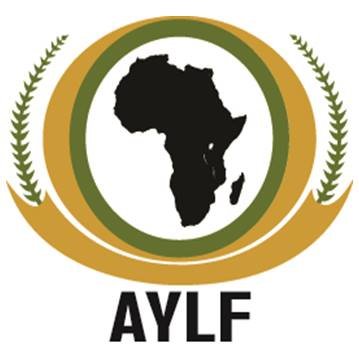I
believe when under pressure from outside, we need to stop, take a break and
think clearly.
Life
is full of unpleasant surprises that may pressure us to make decisions that we
end up regretting. It’s never that serious. This is a statement I say and I try
to live by. During those moments, I strongly believe we need to rise above the
situation, look beyond the situation; the big picture, step aside out of the
storm and get space to think clearly. If we fail to do this, whatever we do
might be disastrous especially if it’s a very crucial issue.
God
is always in control of everything and nothing catches Him by surprise. God
doesn’t have a crisis meeting because something He didn’t know has just
happened. Something He didn’t think through. The situation might not be our
preferred one but God is fully aware of what you are going through and will for
sure provide a way out if only you choose to focus on Him at that point. No
temptation(situation) has overtaken you except what is common to mankind. And
God is faithful; he will not let you be tempted beyond what you
can bear. But when you are tempted, he will also provide a way out so that you can endure
it.
Those
who come out as wise are the ones who do not react to everything but those who
respond after careful consideration and weighing out the consequences of their
action. They then, responding fully are aware of the responsibility that their
response brings. We admire such people and would want to be like them. We
wonder how come they don’t work themselves up. How come they are calm. I
believe it’s because they have chosen to always consider the bigger picture and
are willing to lose the fight sometimes in order to win the war.
Allow
me to borrow and paraphrase from Steve Covey’s material on The 7 Habits of
Highly Effective People; Reactive responses are guided by feelings, not values.
When someone or something harm us we just react - without thinking. If someone
slaps them on the cheek, they just burst out and box the guy in the face,
without thinking, without choosing their response, they simply react. In
contrast to these, Proactive choices are guided by values. Instead of just
reacting you pause for a moment and select a response that is in line with your
values. In our case, as followers of Jesus, we need to ask ourselves "What
would Jesus do in this Situation." When we live according to Jesus’
principles, no matter what our reactions, our sinful desires, or our friends
are telling us, we ought to be proactive. Remember, Proactive choices are
guided by our values, not reactions. Even if a situation or behaviour of another person is completely
out of our control, we still are able to choose our response to that situation
or behaviour. The ability or habit of withholding an initial reaction,
such as anger or violence, in order to take a moment and reflect on the best
response under the circumstance - is what we are talking about when we refer to
being proactive.
I
feel bad sometimes when I hear a statement like, “I had no choice” or “I had to
do it.” We always have choices. Failing to exercise that freedom to choose is a
choice in itself. So when you think you had no choice, you already made a
choice. But if only we would stop to reconsider our choices so we respond based
on our values and what we believe in, we would experience a much better
outcome. The issue is, you might have no control over what life brings your
way, but how you respond to that is fully your choice.
I
have found myself in situations where I react instead of responding. I later
play the scenario in my head and mostly I always feel I could have done better
than what I did. Maybe if I listened better, maybe if I didn’t say what I said
or if I walked away from the toxic situation and came back later when am sober
and clear in thought. I end up being full of “maybe” statements. Fortunate
enough, I can still choose how I respond to the feeling I have at the moment.
How
many times have you done something under pressure that you regretted later?
What can you do differently given the same pressure again? How many times have
you used the statement “I had no choice”? When was the last time you were truly
intentional in a situation? How was the outcome?
As
a leader and a follower of Jesus, the statement “I had no Choice” or “I had to
do it”, or “they made me do it” should never appear in your vocabulary. You
always have a choice. But this choice has to be informed by a particular value
system that you hold high in your life. The belief system that you ascribe to. We
should always be intentional, not accidental. That way we are able to fully
live a life of significance and purpose. A life of impact and influence.
If
this resonates with you, seek to exercise your freedom of choose in every
situation. Look for a small community of friends who you can learn to do this
together with. Being
accountable to a few and practicing with a few. It’s about building a community
of friends to share each other’s journey of being proactive and intentional in
all circumstances. You have to be deeply
committed to each other and desire to see each other grow in this journey. You have
to create a support, encouragement and accountability platform for each other.
The community has to be a small as possible so that there is active engagement
by all involved.
Find
a community around you and see if these conversations make sense to you…
















